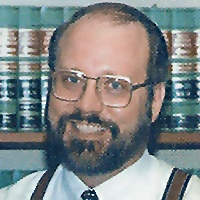Eden RICO Act Lawyer, Georgia
Sponsored Law Firm
-
 x
x

Click For More Info:
-
Ronald Baker Attorney at Law
11877 Douglas Rd Suite 102191 Johns Creek, GA 30005» view mapIntellectual Property Law Working Relentlessly For You
Ronald Baker is a practicing lawyer in Georgia who handles cases involving Intellectual Property Law.
800-597-8640
Not enough matches for Eden RICO Act lawyer.
Below are all Eden Criminal lawyers.
R. Brandon Galloway
✓ VERIFIEDR. Brandon Galloway is a practicing lawyer in the state of Georgia where he currently works at Galloway & Galloway, P.C. He received his bachelors deg... (more)
Chester James Gregg
✓ VERIFIEDBorn in Ilion, New York, Attorney Chester J. "Chet" Gregg graduated from the State University of New York, College at Oswego in 1993 with a B.S. in Se... (more)
Daryl J. Walker
✓ VERIFIEDDaryl Walker proudly serves Savannah, Georgia and the neighboring communities in the areas of criminal, DUI-DWI, accident & injury, and estate law.
Jonathan Hunt
✓ VERIFIEDJonathan Hunt is a practicing lawyer in the state of Georgia specializing in Personal Injury, Domestic, Criminal, Probate and Real Estate Law.
FREE CONSULTATION
CONTACTFREE CONSULTATION
CONTACT Ronald Baker Johns Creek, GA
Ronald Baker Johns Creek, GA




